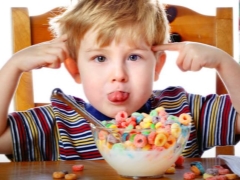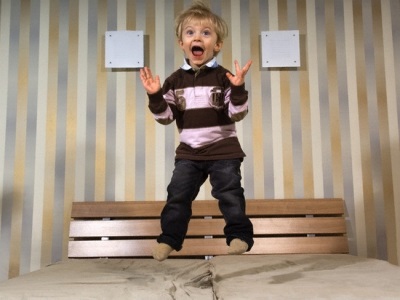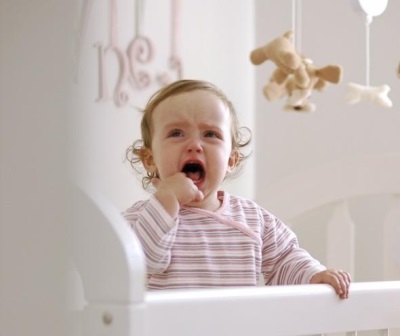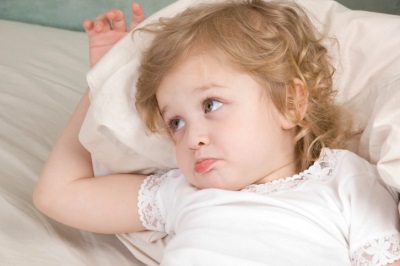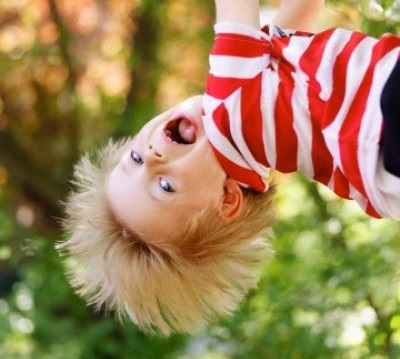Treatment of hyperactivity in preschool children
Hyperactivity in children, also called ADHD (such abbreviation means "attention deficit hyperactivity disorder") Is a fairly common problem. And it should be solved in a complex, attracting competent specialist.
When parents suspect their son or daughter is hyperactive, they often do not know what to do. Therefore, it is important for them to know which doctor treats ADHD in babies, when to address it, how and how to treat such a serious psychological problem, as well as how to properly raise a hyperactive child.
Causes of hyperactivity
One of the main factors causing the appearance of ADHD in young children is genetic predisposition. Other negative factors, able to provoke the development of hyperactivity and attention deficit at an early age, are:
- Severe pregnancy.
- Hypoxia of the fetus during fetal development.
- Stress during pregnancy.
- Medication during gestation.
- Insufficient food of the future mother.
- Stimulation of the onset of labor.
- Protracted childbirth.
- Asphyxia in labor.
- Rapid delivery
- Prematurity of the child.
- Low birth weight.
- The appearance of neurological defects in a child.
- The stay of the newborn in an unfavorable psychological environment.
- Excessively strict upbringing of the child with the desire to totally control him.
- The lack of substances in the child's nutrition, important for the brain.
- Toxic poisoning preschooler.
We recommend to watch the record of Dr. Komarovsky’s program, which deals with the topic of child hyperactivity:
Symptoms of ADHD in Preschoolers
First signs of hyperactivity may appear in children still in infancy. Mom may be suspicious in infants with ADHD for the following symptoms:
- Accelerated physical development. Compared to their peers, hyperactive babies begin to roll over, crawl, stand up or walk earlier.
- Not enough sleep. The baby sleeps less than doctors recommend for his age.
- Difficulty falling asleep. The child has to rock and lull for a long time so that he falls asleep.
- Light sleep. The baby hears in his sleep any rustling and wakes up easily because of them.
- Stormy reaction to something new. The child is very active in responding to guests, changing environment, loud noises.
- Fast loss of interest in the toy.
- Strong attachment to mom.
In children aged 2 years and older, ADHD manifests itself:
- Frequent whims.
- The inability to long focus on a toy.
- Restlessness and constant movement.
- Refusal to go to sleep.
- Careless execution of tasks.
- Slowed down memory development.
- Increased activity when the child is tired.
- Constant distraction in the classroom.
- Provoking conflicts with other children.
- Quick talk.
- Frequent violation of the rules of the game.
- Lack of self-discipline.
- Inability to listen to the answer and the constant interruption of the interlocutor.
- Denial of restrictions and prohibitions.
- Increased forgetfulness.
- Losing your stuff.
How to diagnose hyperactivity
If a mother has noticed some of the symptoms described above in her daughter or son, she should contact any of these specialists with the child:
- Children's neurologist.
- Child psychologist.
- Children's psychiatrist.
Most often, these specialists are addressed at the age of 3-5 years. After the first examination of a preschooler, the doctor will not make a diagnosis, but will only watch the baby, conduct some tests, talk with parents. If necessary, the child is sent for additional examination.
In the short video below, the children's doctor Yevgeny Komarovsky explains how to recognize a hyperactive child:
Principles of treatment at preschool age
To help a child with hyperactivity, it is important to simultaneously combine these treatments:
- Parent counseling. Before you begin to treat a child, it is important to carry out explanatory work with his parents, explaining what are the features of ADHD and how to communicate with the child if there is such a problem. Correction of adult behavior is no less important than the treatment of a child.
- Special conditions of study. If a child cannot attend a regular kindergarten, one should choose such an institution for him or those types of extracurricular activities where the child with hyperactivity will feel comfortable.
- Drug therapy. Children with ADHD are prescribed sedatives or psychostimulant medications, selecting them individually. Since the treatment should be long, synthetic drugs alternate with herbal teas. Treatment of folk remedies includes the use of motherwort, thyme, lemon balm, valerian, mint. Also, children are given vitamins and nutritional supplements necessary to support the nervous system.
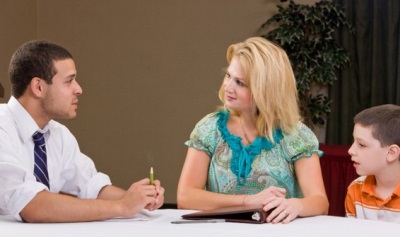
Tips for parents
- Treat your baby kindly and with understanding.
- Secure the apartment and make sure that the baby does not get hurt during the games.
- For a child with hyperactivity, it is very important to adhere to the daily regimen, even on weekends.
- Try to minimize emotional overload. Watch quiet cartoons and programs in which there is no aggression or a terrible character.
- Do not invite a lot of guests and try to avoid noisy companies.
- Limit your time at the computer.
- Keep a balance of the child's diet, so that he gets with food micronutrients and vitamins that he needs for full development.
- Dose mental loads, and all tasks must be feasible and understandable.
- Finish the day with quiet games and reading.
- Create a special bedtime ritual that will help your baby calm down and fall asleep easier.
- Ensure that the child is sleeping enough.
- During classes, take regular breaks, allowing your child to warm up and run a little.
- Do not punish the child physically and do not shout at him.
- Praise the child for his achievements, even if they are small.
- Teach your child to be neat and tidy, but do not give the crumbs several instructions at once.
- Pick a hobby that will help a preschooler to spend an excess of his energy.
- Penalties for the child must be consistent between the parents, adequate and consistent. The child must understand the connection of his act and punishment.
- Do not quarrel if there is a child nearby.
- Pay attention to all family members, not giving preference only to the child.
- Think carefully about leisure. Going with a child to nature or to visit, try to take into account all the details.
- Do not forget about your own holiday. Spend some time without a child to return to him vigorous and calm.
About what Dr. Komarovsky thinks about raising children with ADHD, see here:
It is very important for parents to behave correctly. Read more about this in the next video of a clinical psychologist Veronika Stepanova.
